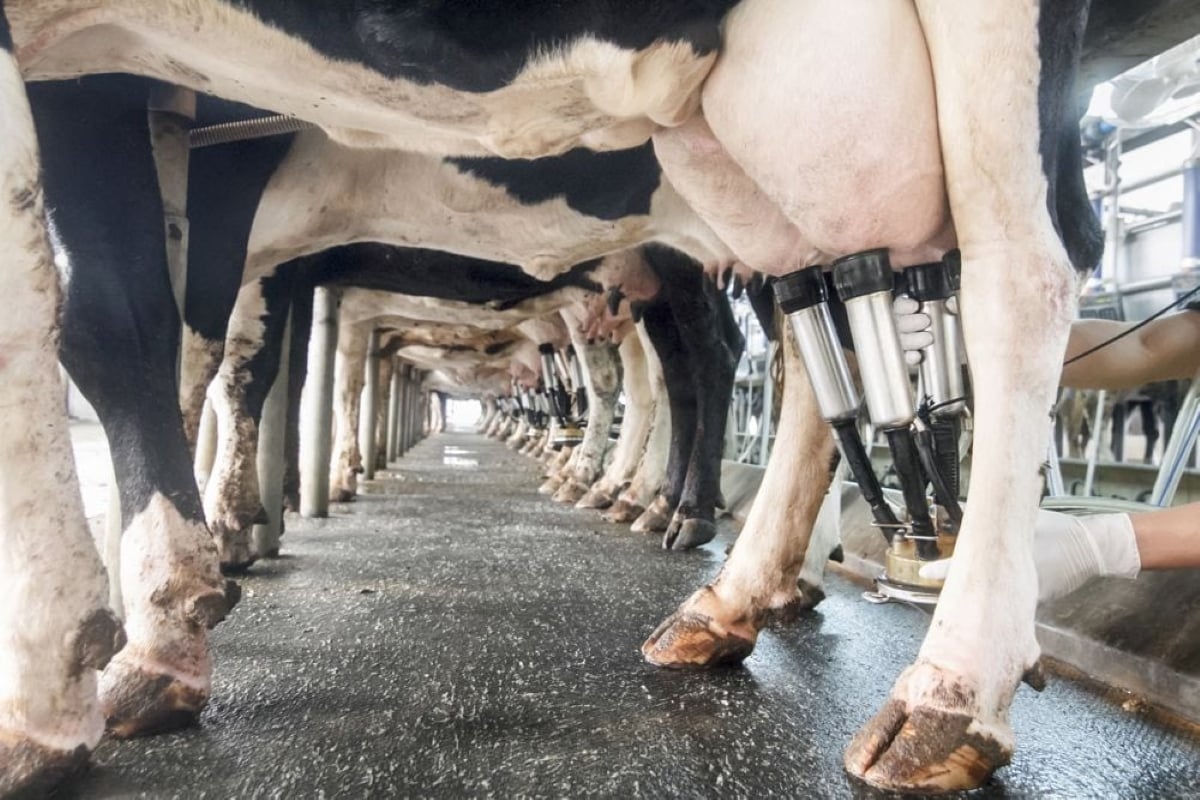Oilseeds futures fell on Monday on weaker crude oil prices, improved harvest weather in South America and slowing Chinese soybean imports.
The strong Canadian dollar is also putting downward pressure on canola.
A new earthquake in Japan kept the canola market on edge. Damage from the original earthquake and aftershocks, electricity shortages caused by the nuclear crisis, and supply chain disruptions are hurting the Japanese economy.
New crop months fell less than old crop on worries about wet soil and delayed seeding in Canada.
Read Also

Farm gate milk price to rise in 2026
The Canadian Dairy Commission will raise its farm gate milk price by 2.3255 per cent in February, the Crown corporation announced on Friday.
Flooding is already causing creeks to top their banks, cutting some roads and causing damage in Western Canada.
Soybean prices were pressured by China’s state-owned trading house COFCO saying China is likely to cancel or defer some cargoes because of poor crushing margins.
Corn rose on continued worries about tight supply. The rise was limited by expectations that the first USDA report on seeding progress would show a fast start to seeding, especially in the southern United States where soils are dry. However, the seeding progress number, released after the market close, came in at three percent of intended acreage, the same as last year and the long term average.
The southern and western part of the hard red winter wheat area endured another hot, dry weekend. But Kansas City and Minneapolis wheat futures fell as traders unwound spreads that favoured high protein crop.
The crop progress report issued after the close showed the percentage of U.S. winter wheat rated poor to very poor increased to 36 percent from 32 percent the week before.
In Texas 66 percent is rated poor to very poor, up from 61 percent the previous week.
Oklahoma is rated 60 percent poor to very poor, up from 53 the previous week.
Kansas, the largest hard red winter state, is rated 37 percent poor to very poor, up from 34 percent the previous week.
Winnipeg (per tonne)
Canola May 11 $582.20, down $6.70
Canola Jul 11 $591.00, down $6.80
Canola Nov 11 $578.40, down $5.10
Canola Jan 12 $584.90, down $5.10
The previous day’s best basis widened to $10 under the May contract according to ICE Futures Canada in Winnipeg.
The May contract’s Relative Strength Index was 50. The rule of thumb is an RSI of 30 indicates an over sold market and 70 indicates an over bought market.
Western Barley May 11 $200, unchanged
Chicago (per bushel)
Soybeans May 11 $13.685, down 23.75 cents
Soybeans Jul 11 $13.7975, down 24.0 cents
Soybeans Nov 11 $13.8025, down 15.75 cents
Corn May 11 $7.76, up 8.0 cents
Corn Dec 11 $6.5725, up 4.25 cents
Oats May 11 $4.015, up 8.0 cents
Oats Jul 11 $4.10, up 8.0 cents
Minneapolis (per bushel)
Spring Wheat May 11 $9.3575, down 17.5 cents
Spring Wheat Jul 11 $9.44, down 17.25 cents
Spring Wheat Dec 11 $9.5975, down 13.5 cents
Light crude oil nearby futures in New York fell $2.87 to $109.92 US per barrel on prospects for a Libyan peace deal.
The Canadian dollar at noon was $1.0474 US, up from $1.0454 the previous trading day. The U.S. dollar at noon was 95.47 cents Cdn.
The Toronto Stock Exchange composite index fell 211.54 points, or 1.5 percent, to 13.996.86.
The Standard & Poor’s 500 index fell 3.71 points, or 0.28 percent, to 1,324.46.













